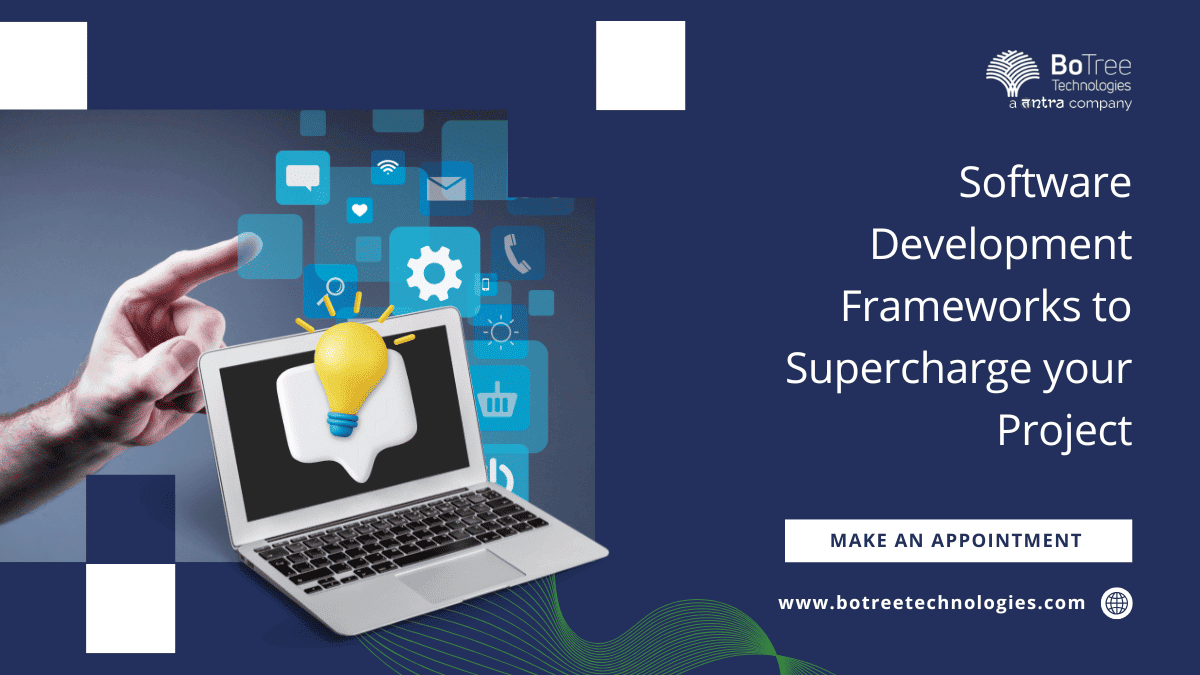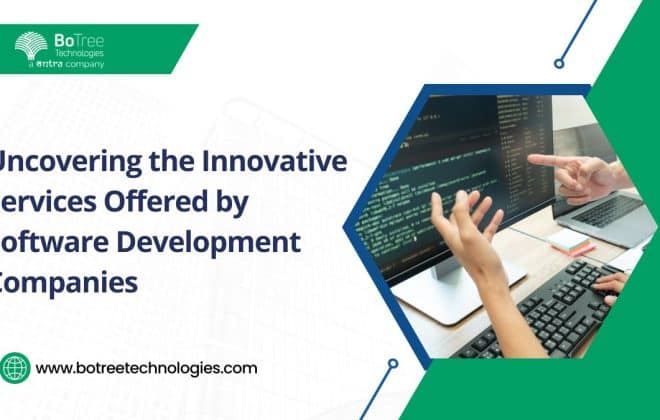
Software Development Frameworks to Supercharge your Project
Fragmented healthcare data slows down care and increases admin overhead. This blog explores how Salesforce for Healthcare solves that by offering a unified CRM platform that integrates EHR systems, automates workflows, and improves patient engagement. From real-time collaboration to predictive analytics and HIPAA-compliant security, Salesforce helps providers modernize systems and deliver personalized, efficient care. The blog also highlights real-world success stories and practical steps for implementation, especially for providers in regions like Maryland seeking scalable, patient-first solutions. Continue reading to learn more.
Building a software product in today’s world is like entering a Formula 1 race. Everyone’s chasing speed, precision, and performance. The question is: are you showing up in a beat-up sedan or a finely tuned machine?
If you’re planning to launch a new digital product, upgrade an existing system, or lead a digital transformation in your company, you already know how high the stakes are. Deadlines are tight, expectations are sky-high, and there’s zero room for failure.
And that’s where your choice of software development frameworks comes in.
This article isn’t a dry tech breakdown – t’s your go-to guide for making confident decisions about the technology your business runs on. We’ll unpack how frameworks shape the speed, quality, and flexibility of your software, walk through the top software frameworks 2025, and help you decide which one fits your unique project.
No fluff. Just practical insights, shared like one decision-maker to another.
What Exactly Is a Software Development Framework?
Imagine you’re building a house. Would you rather start with a bare plot of land or with pre-poured foundations, plumbing, and a team that’s already worked together? That’s the difference between building software with and without a framework.
A software development framework is a ready-made structure—think of it as your blueprint, toolkit, and engineering crew all rolled into one. It gives your developers a head start by offering reusable code, standardized practices, and scalable architecture.
The right framework saves time, reduces risk, and makes life easier for everyone involved—from your engineers to your end users.
Why This Matters to You (Yes, You)
You’re not in the weeds writing code—but you are the one driving results. As a business leader, founder, product owner, or department head, you’re responsible for outcomes. The choice of framework may not seem like your territory, but it absolutely influences your timelines, costs, and product quality.
Here’s what the right project development frameworks bring to the table:
- Faster product development
- Easier maintenance and upgrades
- Better scalability as your user base grows
- Stronger alignment between business goals and tech execution
In short: better frameworks = better ROI.
The Top Software Frameworks 2025: What’s Hot Right Now
Let’s take a look at the top software frameworks 2025 that forward-thinking companies are using to build fast, secure, and future-ready applications.
1. React (Front-End)
React has been holding its ground for years—and for good reason. It’s fast, flexible, and backed by a huge developer community. If your product needs a smooth, dynamic, and user-focused interface, React is a fantastic bet.
Use it if: You’re building consumer-facing applications where UX is everything.
2. Next.js (Full-Stack JavaScript)
React’s more structured sibling, Next.js takes care of performance, SEO, and server-side rendering—without giving your team a headache.
Use it if: You want a lightning-fast website or application that plays nicely with search engines.
3. Flutter (Cross-Platform)
Why build multiple apps when you can build one that works on all platforms? Flutter is a dream for startups and companies that want a unified experience across mobile, web, and desktop.
Use it if: You’re aiming for consistent UI and cost-effective cross-platform development.
4. .NET Core (Back-End)
If you’re in the enterprise space or building large-scale systems, .NET Core is a solid, battle-tested option. It’s secure, powerful, and integrates beautifully with other Microsoft tools.
Use it if: You’re developing for industries that demand high compliance and robustness.
5. Django (Python-Based)
Quick to set up, secure by design, and scalable—Django is the go-to framework for many startups and data-centric products.
Use it if: You’re building apps that need rapid development with clean code and tight security.
How to Choose the Best Frameworks for Software Development
Here’s the truth—there’s no one-size-fits-all answer. Choosing from the best frameworks for software development depends entirely on your goals, resources, and team structure.
Ask yourself:
- Who’s going to use this software—end-users, internal teams, or both?
- What platforms do you need to support—web, mobile, desktop?
- How fast do you need to get to market?
- Will the project scale significantly in the future?
- Do you have in-house developers or are you working with a software engineering company?
Your answers should point you toward the right path.
Where Software Development Technologies and Services Come Into Play
Let’s say you’ve picked a framework. Now what? You still need the right team, tools, and execution strategy. This is where software development services and software architecture services start to shine.
If you’re working with a custom software development partner, make sure they:
- Have hands-on experience with your chosen frameworks
- Understand both the technical and business side of your goals
- Offer agile software development services for flexibility
- Provide long-term support, not just launch assistance
Some agencies even offer software development consulting to guide your choices and help you avoid expensive missteps.
Don’t Sleep on the Back-End
While front-end frameworks tend to steal the spotlight, your back-end is where the real horsepower lies. It’s where data lives, payments get processed, and systems talk to each other.
Make sure your enterprise software solutions are backed by frameworks that support your long-term growth. Whether that’s Laravel for PHP projects, Spring Boot for Java, or Node.js for fast APIs – t’s worth investing in the right technology now, so you’re not rebuilding things later.
The Role of Application Development Services
Sometimes, your internal team isn’t enough. You need reinforcements. This is where application development services step in.
A solid partner won’t just build what you ask—they’ll bring ideas to the table, challenge assumptions, and push for better outcomes. They’ll help you choose the right software development technologies, avoid technical debt, and stay future-ready.
Look for teams that:
- Specialize in your industry or product type
- Have strong opinions but listen well
- Care about results, not just deliverables
Wrapping It Up
Picking the right software development frameworks isn’t just a tech decision – t’s a business decision. It affects your speed to market, your customer experience, your bottom line.
Whether you’re building a slick new mobile app, a powerful enterprise platform, or something totally unique, the right framework and the right development partner will make all the difference.
So take the time. Ask the right questions. Choose wisely.
And if you ever want to talk strategy, frameworks, or find the right software development consulting partner—you know where to find us.
Let’s build something great. Schedule a call with Tntra today!
FAQs
Which are the best software development frameworks in 2025?
In 2025, top frameworks include React, Angular, Vue.js for frontend, and Node.js, Django, and Spring Boot for backend—offering speed, security, and scalability.
How do I choose the right framework for my application?
Start by assessing your project goals, tech stack compatibility, team expertise, and scalability needs. Choose a framework that aligns with both business and technical requirements.
What are the key benefits of using modern development frameworks?
Modern frameworks offer faster development, reusable components, built-in security, scalability, and robust community support—reducing time-to-market and maintenance overhead.
Are open-source frameworks reliable for enterprise projects?
Yes. Many enterprise-grade solutions run on open-source frameworks like React or Django. Their reliability depends on community support, documentation, and long-term maintenance.
What is the difference between frontend and backend frameworks?
Frontend frameworks handle the user interface (what users see), while backend frameworks manage server-side logic, databases, and application architecture.
Can frameworks speed up software development timelines?
Absolutely. Frameworks offer pre-built modules, structured patterns, and automation tools that reduce coding time and accelerate development cycles.
Is it possible to switch frameworks mid-project?
While possible, switching frameworks mid-project is complex and costly. It’s best done only if absolutely necessary and with proper planning.
Which framework is best for scalable and secure applications?
Frameworks like Spring Boot, Django, and Node.js are ideal for scalable, secure apps. They offer built-in security features and performance optimization tools.




